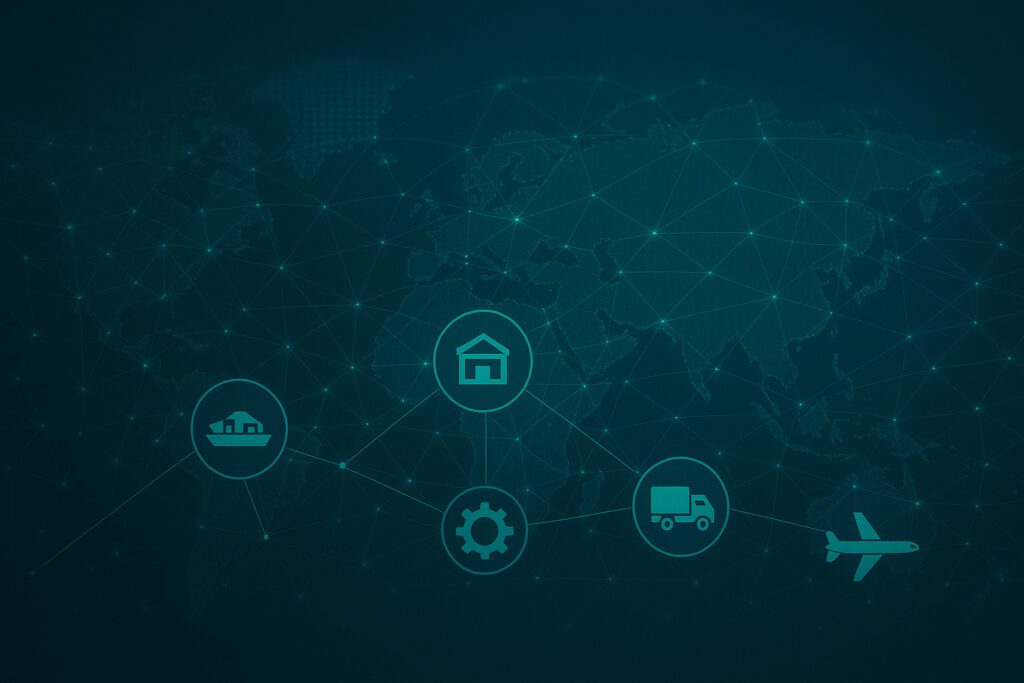
Meet the Supply Chain Now Host: Marty Parker
Supply Chain Now is the voice of the supply chain industry, and our hosts are experts in the field. Podcast listeners tune in to hear the words of wisdom from host Marty Parker, whose practical advice is taken everywhere from the classroom to the C-suite.
An Educated Voice in Supply Chain
Parker certainly has the supply chain chops to back up his advice. He has 30 years of experience in the supply chain C-suite (COO, CMO, CSO), is the founder and CEO of Adæpt Advising, and is an award-winning senior lecturer in supply chain and operations management at the University of Georgia.
He also founded and leads UGA’s Supply Chain Advisory Board, is the academic director of the university’s Leaders Academy, and serves on multiple advisory boards, including the Trucking Profitability Strategies Conference, Zion Solutions Group, and Carlton Creative Co.
Mentoring on Campus and in the C-suite
Parker’s mentoring carries supply chain stakeholders from their student days to the C-suite. At UGA, he helps his students network and land internships and post-graduation jobs. Through Adæpt Advising, he works with C-suite executives to improve their skills, become better leaders, and develop strategic plans with detailed action steps and financial targets.
He credits his ability to educate all types of people in all phases of their careers to being a lifelong learner himself.
“You must be curious and a continuous learner. My friend Carl Lubbe at Curiosity Coach calls curiosity a superpower. I learned that early on and have always been constantly learning and working to continuously improve myself. If you don’t, you will lose personally and be left behind, and your company will also lose,” Parker says.
Lessons from the Early Days
Fairly early in Parker’s career, his boss told him, “Marty, nobody gets $h*& done like you. But people feel like you are running through them when you do it.” Parker says he never would have made it to the C-suite without receiving that real, honest feedback, validating it, and then making changes in his leadership style.
He also makes sure to give credit to others. “I know so many leaders who are lazy and use what I call ‘the boss card,’” Parker says. “‘Do it because I said so and remember that I am the boss.’ Instead of using the boss card, I learned a form of leadership where you learn the ‘why’ and take time to explain it. It helps your team know what to do.
“Everyone knows your role in improving things, so give the credit to your team and co-workers, but make it clear what you expect and why they are doing it. If you are using the boss card more than once a month, you are using it too much.”
Parker also is a believer in what he calls chameleon leadership, in which you “do unto others as they want you to do unto them. You then have to serve your employees and understand their needs, which makes for a terrific boss. There is a whole philosophy here around a reverse org chart, where the CEO serves the exec team, who serves the managers/supervisors, who serve the employees, who serve the customers. Early on, I saw that great leaders knew their teams and helped them to be successful.”
Critical Components of Operational Strategies in 2025
During his career, Parker has been responsible for operations strategy, asset management, and technology development for major supply chain companies, and he offers advice on the most critical components of an effective operational strategy in 2025.
“Remember that operational strategy comes from business strategy, which is essentially ‘how will I win in the marketplace?’” he says. “The key to winning will be flexibility and reviewing and updating that strategy regularly because so much is changing. What will the tariffs be and where? Will government funding dry up on infrastructure? Will genAI disrupt my business in some way? What competitors are leveraging these new technologies to disrupt my business? How will I leverage these technologies to win in the marketplace? If I leverage the technology myself, how will it impact my employees, hiring practices, etc.?
“Most companies do strategy — then stick it in a drawer — but they need to meet regularly to respond to external and internal challenges. Honestly, I have not seen this much change at one time in my entire career,” Parker says.
Game-Changing Technologies in Supply Chain
Parker sees generative AI and robotics as two game changers in supply chain.
“I recently saw Kasey Lobaugh from Deloitte speak about genAI at the National Retail Federation Conference. My takeaway is that genAI is doubling in capabilities every three months versus the old Moore’s Law idea for computer speed doubling every 18 to 24 months. We can then barely understand the capabilities and applications at this rate,” he says.
Parker says genAI and robotics can reshape the industry in a myriad of ways, including:
-
- Self-driving trucks.
- Cameras that do perpetual inventory from drones.
- Cameras that read and sort products without barcodes or RFID.
- Significantly reduced product design time and launch.
- ERP systems like Doss that can be implemented in two weeks and are fully customizable.
“I have my friend Drew Eubank at Zion Solutions Group speak in my classes every semester, and he always has a new, amazing technology to show the students,” Parker says. “I am also working with my friend Gene Sanders at Geek+, which recently opened an innovation center in Atlanta that I plan to take my students to see the robots in action. I was at their grand opening last year, and it was amazing to see.”
The Future of Supply Chain
“COVID has moved the supply chain group from a cost center in a windowless basement to a profit center that can help businesses win. The CEO used to be mostly selected from the marketing or sales side, but today more COOs and CFOs are moving into that role. This is a wonderful trend and why I tell my students that supply chain is such a wonderful career decision,” he says.
“My students must learn not only how to do the analysis but how to apply it to make their companies more revenue or spend less money while improving their processes,” Parker continues. “But my students also thrive in supply chain roles because of their leadership skills and ability to work well with others. Even with all of the data, genAI, robotics, etc., people will still be involved in supply chain management, so working to improve those people skills matters.
“A good friend of mine — Kimberly Evans at Relations Research — does this practically, helping companies figure out how to maximize their employee relationships and help leaders improve those relationships. I believe that the failures in the supply chain generally aren’t our technical solutions but our leadership challenges,” he says.
“We also must be able to work across disciplines. I’ve been a COO, a CMO, and a CSO. Success in supply chain means understanding and working to improve the intersection between supply chain and marketing, sales, strategy, R&D, accounting, finance, HR, IT, engineering, etc. Many of the pain points in a company aren’t in a specific team but in the intersections and having skills to see things from the perspectives of the rest of the groups and find integrated solutions. That all relates back to working well with people and being a continuous learner.”
The Best Part of Being a Supply Chain Now Host
Parker loves sharing supply chain practitioners’ success stories on Supply Chain Now podcasts.
“Bottom line, supply chain professionals are hardworking, salt-of-the-earth, crazy smart people. I thought I knew that before, but the podcast has just confirmed it across industries, technologies, and companies,” he says.
“Virtually every guest has been a super nice person with a track record of leadership excellence. As an example, Scott Luton and I met Mark Gilham from Enable and Kevin Mitchell from the Professional Pricing Society recently for an in-person webinar. Mark and Kevin were delightful, and we spent a ton of time together since it was live and they were both so patient, funny, thoughtful, and interesting.
“And in co-hosting several podcasts with Wiley Jones at Doss, I told him I had to be on my ‘A game’ because he was so smart and what he was doing was so interesting. And Wiley was also super nice and willing to meet after the podcast to continue our conversation,” Parker says.
Tune in to Listen to All of the Supply Chain Now Hosts
Parker is just one of the Supply Chain Now voices continuing the conversation. When looking for information on the latest industry innovations, supply chain podcast listeners tune in to Supply Chain Now and its roster of experts.
Our industry-leading programs include:
The Supply Chain Now library is packed with informational programs. Or listen now.
More Articles

Making Moves: What Supply Chain Leaders Are Planning in 2024

